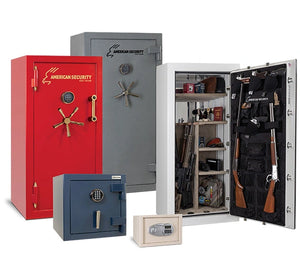
Law Firm Document Retention: Guidelines and Best Practices for Fireproof Filing Cabinets
Introduction to Document Retention Policies
Document retention policies are crucial for law firms to ensure compliance with industry-specific regulations and to be prepared for litigation and disaster recovery. Law firms must adhere to specific guidelines regarding the retention of client files, as outlined by the American Bar Association (ABA) and state bars [
].
Retention Periods for Client Files
The American Bar Association (ABA) record retention guidelines require a five-year timeline to retain most client materials. State bars also have their own policies regarding the minimum time to keep files. Various types of legal matters, such as tax documents, estate planning, criminal matters, prenuptial agreements, and continuing child custody or support obligations, may require longer retention periods, ranging between five and ten years. [ 1 ].
Paper and Electronic Files Retention
Law firms must retain both paper and electronic files, and it's important to have a well-organized inventory of how each file is handled, whether it is permanently deleted, shredded, or returned [
].
Creating a Document Retention Policy
It is essential for law firms to create a comprehensive document retention policy that serves as a litigation preparedness and disaster preparedness tool. This policy should be a collaborative effort between executive management, records management experts, attorneys, and the firm's IT department. Additionally, law firms should consider partnering with legal technology firms that specialize in legal hold and preservation to reduce the burden of data management.
Storage System Considerations
Physical storage in the digital age is still important for law firms. While many documents are scanned to save space, original documents must often be retained. The ideal storage environment preserves documents long-term, protecting them from sunlight and water damage. This includes maintaining ideal temperature and humidity levels to prevent degradation and mold growth. Files should be stored in a water- and fire-resistant safe or cabinet that locks, promoting their salvageability in the event of a disaster [ 3 ].
Selecting the Right Fire-Resistant File Cabinet
Law firms should consider investing in fire-resistant file cabinets to protect essential documents from fire damage. Lateral fireproof file cabinets with 1-hour UL certification are recommended for keeping important documents safe from fire damage.
For those interested in exploring the various options and making an informed decision, we recommend reading "A Guide to Choosing the Right Fire-Resistant Lateral File Cabinet". This article provides an in-depth look at selecting the best fire-resistant file cabinet to meet your law firm's needs
Conclusion
In conclusion, law firms must have a well-defined document retention policy and an effective data preservation strategy to ensure compliance with industry-specific regulations and to be prepared for litigation and disaster recovery. Additionally, investing in fire-resistant file cabinets can provide an extra layer of protection for essential documents.











